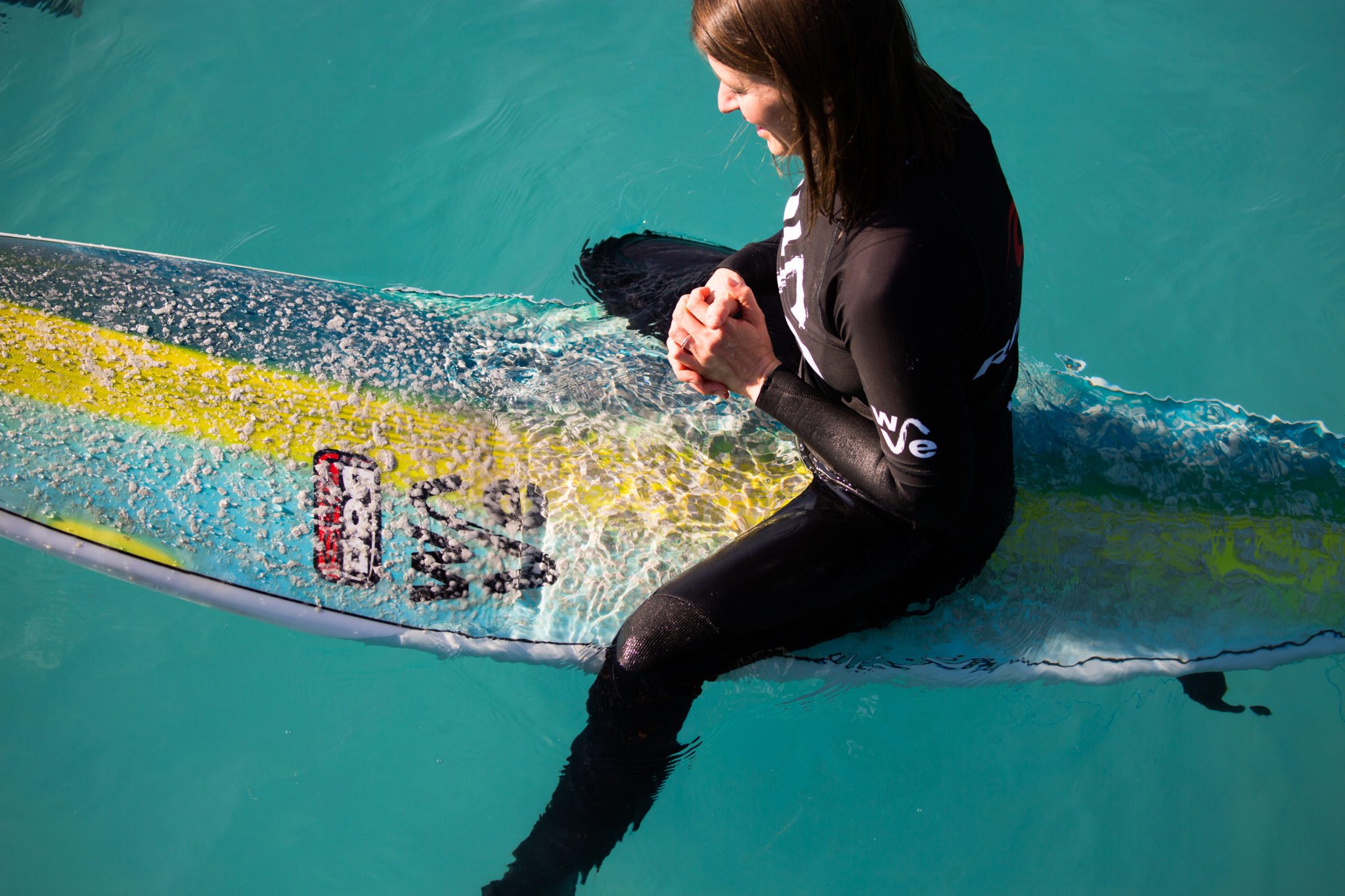Water inspires us. We love being in it, on it, and by it. We often take holidays near it and take endless pictures of it. We are fascinated by its ebbs and flow. It both excites us and relaxes us. It moves us and captures our imagination. And most importantly of all it seems to have the power to soothe and heal us.
So how do blue spaces actually impact our mental health and wellbeing?
Blue spaces can be said to affect our mental health and wellbeing in three ways: boosting us when we’re OK; helping to prevent mental distress, and finally restoring wellbeing when we’re having problems.
The calmness from being close to water
Spending time in or around water certainly appears to help keep us in relatively good mental health. People living near expanses of water, particularly the coast, tend to be healthier and happier than those living inland, and beach environments have been shown to enhance mental health, and reduce poor moods.
In 2016, a study of people in Wellington, New Zealand, found that people living in homes with views of blue spaces experienced lower levels of mental distress even if they lived relatively far from the sea.
The calmness that seems to be instilled by being closer to water seems particularly
noticeable in surfers. Compared to the general population, they show significantly lower levels of depression and anxiety, and they’re much less likely to get emotionally upset by stress; researchers suggest that this is down to the nature of surfing, specifically its combination of physical exercise and absorption in riding waves. Surfers at all levels experience a ‘flow state’ and type of mindfulness, which appears to counter stress.
We don’t have to be suffering from extreme stress or poor mental health to benefit from blue spaces. One influential 1991 theory, known as ‘Stress Recovery Theory’, suggests that after being in a stressful place, humans have a biological impulse to leave that place in order to recharge our energy levels, renew our positivity and ease the effects of the stress on our bodies. According to this theory, in natural environments we take more notice of things and respond more positively to them, and so recover better from stress in these settings.
At present, there is more evidence for the health and wellbeing benefits of coastal blue spaces than inland ones,’ says Matt White, Senior Lecturer at the University of Exeter and a lead academic for the Blue Health project. ‘But more work on inland waters has been done in Germany and Ireland and more recently the US – the findings are broadly similar: blue spaces on the coast or inland tend to enhance the natural element typified by “green”. Optimal environments for mental health seem to be the water’s edge with a mix of blue and green.’
Soft fascination and pink noise
Rachel and Stephen Kaplan, psychology professors who have extensively studied the effects of nature on people’s health, suggest that natural environments similarly help us with focus or ‘attention restoration’ when we are mentally fatigued. Humans, have two kinds of attention: directed, which is strongly focused, the kind of concentration we might use driving a car; and involuntary, which is the kind we might give to unthreatening distant noises, for example, or passing clouds. Nature, for the Kaplans, gently stimulates our involuntary attention, while giving our directed attention a rest, allowing our minds to relax and restore themselves. The Kaplans’ term for the stimulation of our involuntary attention is ‘soft fascination’.
Soft fascination in blue spaces might come from the sound of water flowing over rocks, or the sight of breaking waves. It’s also been suggested that the reflection of light on water, which tends to be pleasing and unpredictable, may also be a reason that we find water-filled environments so restorative. And it may even be that the fresh smells of fresh and seawater work on us too.
The sounds of water alone can be enough to reduce stress in people. Visitors to The Wave often comment on how the constant sound of the waves breaking relaxes them, and makes them feel at ease, even if they have not been surfing themselves. This may be because many of the sounds made by water in natural settings – gentle river currents and the soft sound of waves washing ashore, for example – fall into the category of ‘pink noise’ – the name given to a range of sound made up equally of all the sound frequencies that humans can hear, but with more volume at the lower frequencies (‘white noise with the bass turned up’ as it’s sometimes called).Pink noise may do more than reduce stress levels: several different researchers found it improves deep sleep and memory.
Small Self
People often talk about therapeutic feelings of awe and smallness in the face of the natural force of the ocean - which some researchers refer to as the ‘small self’.
Researcher, activist and Irish National Surfing Champion, Easkey Britton says:
“It’s so amazing being able to jump in the sea and hit reset - in that sense it’s always been therapeutic for me. There is often so much to learn and it’s very humbling to be immersed in an environment that is so powerful and unpredictable, that you have to surrender the need for control and just be in the moment.”
These feelings of awe when interacting with nature and their effects on our wellbeing have been investigated a good deal in recent years. An influential 2015 study found that feelings of awe induced by nature could boost the immune system, and make people more ‘prosocial’ (that is, more inclined to get along with other people).
The authors of the 2015 study argue that this is because feelings of awe give people a sense of a ‘small self’, which they define as ‘a relative diminishment of the individual self and its interests vis-à-vis something perceived to be more vast and powerful than oneself.’ In other words, huge or powerful natural phenomena reduce our sense of self-importance, which in turn makes it easier to connect with other people. The study is particularly interesting because the authors showed that feelings of small self also made us more likely to help others – an insight with important social implications.
Biophilia
In 1984, E. O. Wilson, a biologist at Harvard University, introduced the concept of ‘biophilia’– essentially a bond with nature and animals that evolution has left in humans’ genetic makeup. Wilson proposed that, because we spent most of our evolutionary history in nature, we have an instinctive physical, cognitive and emotional attachment to natural environments. In the same year, environmental psychologist Roger Ulrich seemed to tap into this concept when he demonstrated that recovery from surgery was accelerated when patients were in hospital rooms with a view onto nature.
When we consider the reasons that so many of us feel better around the coast and inland waterways, it’s hard to counter Wilson’s biophilia hypothesis that, because elements in nature were so vital to us as we evolved, we have retained a built-in impulse to interact with nature and we feel good when we do.
Water was especially important to us because it was a source of food, drink and fertility, and land-based predators rarely came out of it. As Wallace J Nicholls shows in his book Blue Mind, advances in neuroscience seem to lend weight to this idea. He claims the brain’s responses to environmental stimuli produce complex emotions in us when we sit by the ocean, ‘[And] the same could be said for rivers – a source of fresh water and food,’ he writes. ‘Lakes would also offer some of the same. It’s not hard to imagine early humans acting on their innate (that is, honed over thousands of generations) emotional responses by setting up camp nearby, likely within view of water... the resulting neurochemical release would mean that a great view that encompassed such safety and access would feel beautiful.’
‘Overall, the studies suggest that blue care can have direct benefits for health, especially mental health and psycho-social wellbeing.’- E. Britton, G. Kindermann, C. Domegan and C. Carlin Blue care: a systematic review of blue space interventions for health and wellbeing, 2018
Whilst research is continuing into the specific reasons why, the academic consensus seems to support what we all instinctively feel – that blue makes us feel better.
See our Blue Health report for more detail and all scientific references.

